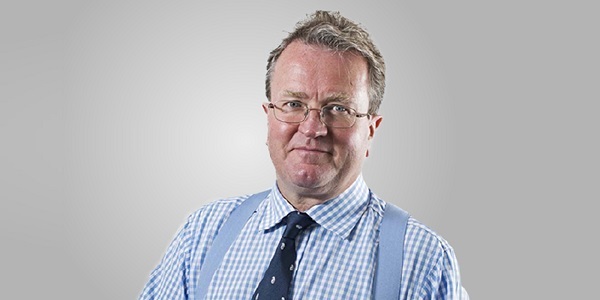Ian Cowie: investment trusts survive the dividend drought
Just two investment trusts out of 182 investing in equities have cut their dividends.
10th September 2020 09:15
by Ian Cowie from interactive investor
Just two investment trusts out of 182 investing in equities have cut their dividends.

Nearly 99% of investment trusts investing in equities have maintained or increased income paid to shareholders since the coronavirus crisis started. That is a remarkable achievement after 52% of FTSE 100 companies failed to deliver dividends as and when expected this year.
What a difference revenue reserves and the closed-end structure can make for shareholders in investment trusts, as opposed to those in trading companies or other forms of pooled fund. These things might sound like technical issues, but they can make the difference between our investments paying up or letting us down.
For example, BHP (LSE:BHP), the world’s biggest miner and a long-term holding in my “forever fund” was the latest blue-chip business to disappoint my dividend hopes with a 10% cut last month. On a brighter note, August saw dividends turn up on time and to the correct value from my investment trust shares, including Ecofin Global Utilities and Infrastructure (LSE: EGL); Henderson Far East Income (LSE: HFE); International Biotechnology (LSE: IBT); JPMorgan Japan Smaller Companies (LSE: JPS) and BlackRock Latin American (LSE: BRLA).
These investment trusts’ dividends totted up to a modest four-figure income during August. By contrast, income from trading companies was noticeable by its absence or diminution with honourable exceptions including payouts from my shares in the digital giant, Apple (NASDAQ: AAPL); the tractor-maker, Deere (NYSE:DE); and telecommunications group, Verizon (NYSE:VZ).
Annabel Brodie-Smith, communications director of the Association of Investment Companies (AIC), told me: “Nearly all investment companies investing in equities, namely 99%, have continued to pay their dividends as expected since the coronavirus crisis.”
Brodie-Smith adds that, overall, just two investment companies out of 182 investing in equities have cut their dividends. As Brodie-Smith points out “this is no mean feat when you look at the number of trading companies slicing their dividends”.
She adds: “Many of these investment companies have been making use of their revenue reserves, an income advantage unique to investment companies over other types of fund, which enables them squirrel away up to 15% of the income they receive each year. In these tough times they can now use these reserves to boost or sustain their dividends.”
The two exceptions or disappointments among dividend-paying equity-based investment trusts are British & American (LSE:BAF) a tiny fund with total assets of £10 million in the UK Equity Income sector and Invesco Perpetual UK Smaller Companies (LSE: IPU) with £164 million of assets in the UK Smaller Companies sector.
Diversification remains an effective and simple way to diminish risks and income-seekers should consider investing internationally.
Sam Witherow, co-manager of JPM Global Equity Income fund, argues the regional disparity in dividend performance is “unprecedented.” He notes: “On the one hand, US dividends look likely to actually grow this year while UK companies are set to slash payouts by over a third.
“Too many British companies have under-invested in their businesses and over-distributed in dividends. In the current crisis, this short-termism has caught up with them and many shareholders have paid the price. Global dividends have a stronger recent track record of growth and the higher levels of earnings cover suggest this advantage should persist.”
Witherow adds UK dividends have also been over-reliant on energy and basic materials. “Dividends globally are far more diversified, with tech and consumer-facing companies making a much larger contribution,” he says.
- Explore all of Ian Cowie's columns
- Stay up to date on investment trusts by signing up to our free newsletter
- Find out more about interactive investor SIPP and pensions here
Diverging dividend strategies around the globe and their varying degrees of security can be seen in statistics from Bloomberg. These suggest FTSE 100 companies distributed nearly two-thirds of corporate earnings to shareholders, with a payout ratio of 64%, while the ratio for America’s Standard & Poor’s 500 was 45% and the MSCI Japan benchmark was 51%. Rates of growth in dividends per share over the last five years for these three geographical sectors also varied widely; they were 3%, 8% and 11%, respectively.
While the past is not necessarily a guide to the future, income-seekers’ experience in recent years strongly suggests we should invest internationally to diminish the risk of disappointment - and consider closed-end funds for the dividends that we depend on.
Ian Cowie holds shares in Apple (AAPL); BHP (BHP); BlackRock Latin American (BRLA); Deere (DE); Ecofin Global Utilities and Infrastructure (EGL); Henderson Far East Income (HFE); International Biotechnology (IBT); JPMorgan Japan Smaller Companies (JPS) and Verizon (VZ) as part of a globally-diversified portfolio of investment trusts and other shares.
Ian Cowie is a freelance contributor and not a direct employee of interactive investor.
These articles are provided for information purposes only. Occasionally, an opinion about whether to buy or sell a specific investment may be provided by third parties. The content is not intended to be a personal recommendation to buy or sell any financial instrument or product, or to adopt any investment strategy as it is not provided based on an assessment of your investing knowledge and experience, your financial situation or your investment objectives. The value of your investments, and the income derived from them, may go down as well as up. You may not get back all the money that you invest. The investments referred to in this article may not be suitable for all investors, and if in doubt, an investor should seek advice from a qualified investment adviser.
Full performance can be found on the company or index summary page on the interactive investor website. Simply click on the company's or index name highlighted in the article.